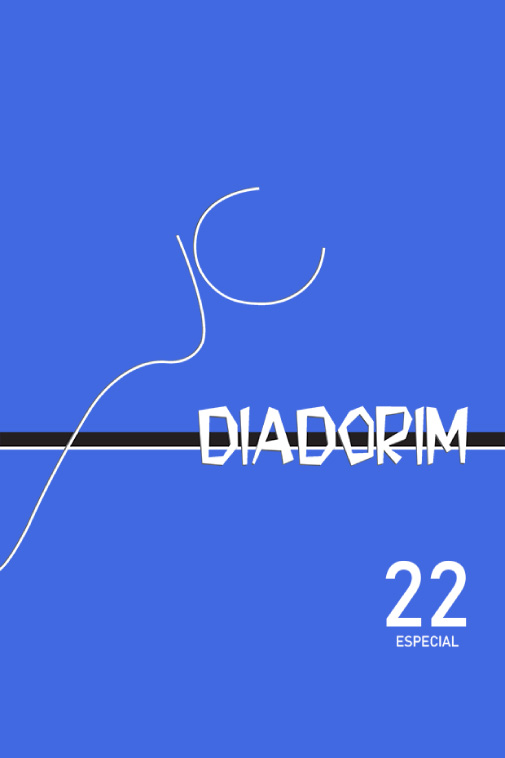Silenced violence in the feminine: a reading of Yara Monteiro’s Essa Dama Bate Bué!
DOI:
https://doi.org/10.35520/diadorim.2020.v22n3a36023Palavras-chave:
violence, women, Angola, colonial and civil warsResumo
Based on the most recent research on women and violence during the colonial and civil war periods which defined post-independence Angola, I analyze Essa Dama Bate Bué!, a novel written by writer Yara Monteiro. My objective is to show, on the one hand, how the novel tells us that writing about personal matters means writing about politics. On the other hand, it is my intention to explore how the writer explores the issue of female violence by creating female characters who enact violence on other women, specifically their own children. Monteiro’s novel demonstrates the interconnectedness of violence, public and private, and its effect on social and psychic life. In sum, my goal is to highlight the silenced forms of familial violence within the broader context of colonial and civil conflicts in Angola and their repercussions in the country’s post-independence.
Referências
CABAÇO, José Luis. Violência Atmosférica e Violências Subjectivas. Uma experiência pessoal. Revista Brasileira de Ciências Sociais, vol. 26, nº 76, pp. 213-218, 2011.
CARUTH, Cathy. Unclaimed Experience: Trauma, Narrative, and History. Johns Hopkins UP, 1996.
CRENSHAW, Kimberlé. Demarginalizing the Intersection of Race and Sex: A Black Feminist Critique of Antidiscrimination Doctrine, Feminist Theory, and Antiracist Politics. University of Chicago Legal Forum, pp. 139–67, 1989.
FANON, Franz. Black Skin, White Masks. Grove Press, 1967.
HEMON, Aleksandar. The Book of My Lives. Picador, 2013.
HENRIQUES, Joana Gorjão. Yara Monteiro. “Sou trineta da escravatura, bisneta da mestiçagem, neta da independência e filha da diáspora.” Ípsilon March 21 2019. < https://www.publico.pt/2019/03/21/culturaipsilon/noticia/trineta-escravatura-bisneta-mesticagem-neta-independencia-filha-diaspora-1865819> Acessado em: 25 Maio 2020.
KALISA, Chantal. Violence in Francophone African and Caribbean Women's Literature U of Nebraska P, 2009.
KASEMBE, Dya; CHIZIANE, Paulina (Org.). O livro da paz da mulher angolana: as heroínas sem nome. Nzila, 2008.
MONTEIRO, Yara. Essa Dama Bate Bué! Guerra & Paz, 2018.
MOREIRA, Terezinha Taborda. História, Violência e Trauma na Escrita Angolana e Moçambicana. Cadernos CESPUC, nº 27, 2015.
PAREDES, Margarida. Combater Duas Vezes. Mulheres na Luta Armada em Angola. Verso da História, 2015.
QUAYSON, Ato. Symbolisation Compulsions: Freud, African Literature and South Africa’s Process of Truth and Reconciliation. The Cambridge Quarterly, vol. 30, nº 3, pp.191–214, 2001.
STUCKI, Andreas. Violence and Gender in Africa’s Iberian Colonies. Feminizing the Portuguese and Spanish Empire, 1950s-1970s. Palgrave Macmillan, 2019.
Downloads
Publicado
Edição
Seção
Licença
Transferência de direitos autorais - Autorização para publicação
Caso o artigo submetido seja aprovado para publicação, já fica acordado que o autor autoriza a UFRJ a reproduzi-lo e publicá-lo na Diadorim: Revista de Estudos Linguísticos e Literários, entendendo-se os termos "reprodução" e "publicação" conforme definição respectivamente dos incisos VI e I do artigo 5° da Lei 9610/98. O artigo poderá ser acessado pela internet, a título gratuito, para consulta e reprodução de exemplar do artigo para uso próprio de quem a consulta. Essa autorização de publicação não tem limitação de tempo, ficando a UFRJ responsável pela manutenção da identificação do autor do artigo.

A Revista Diadorim utiliza uma Licença Creative Commons Atribuição-NãoComercial 4.0 Internacional (CC BY-NC 4.0).

